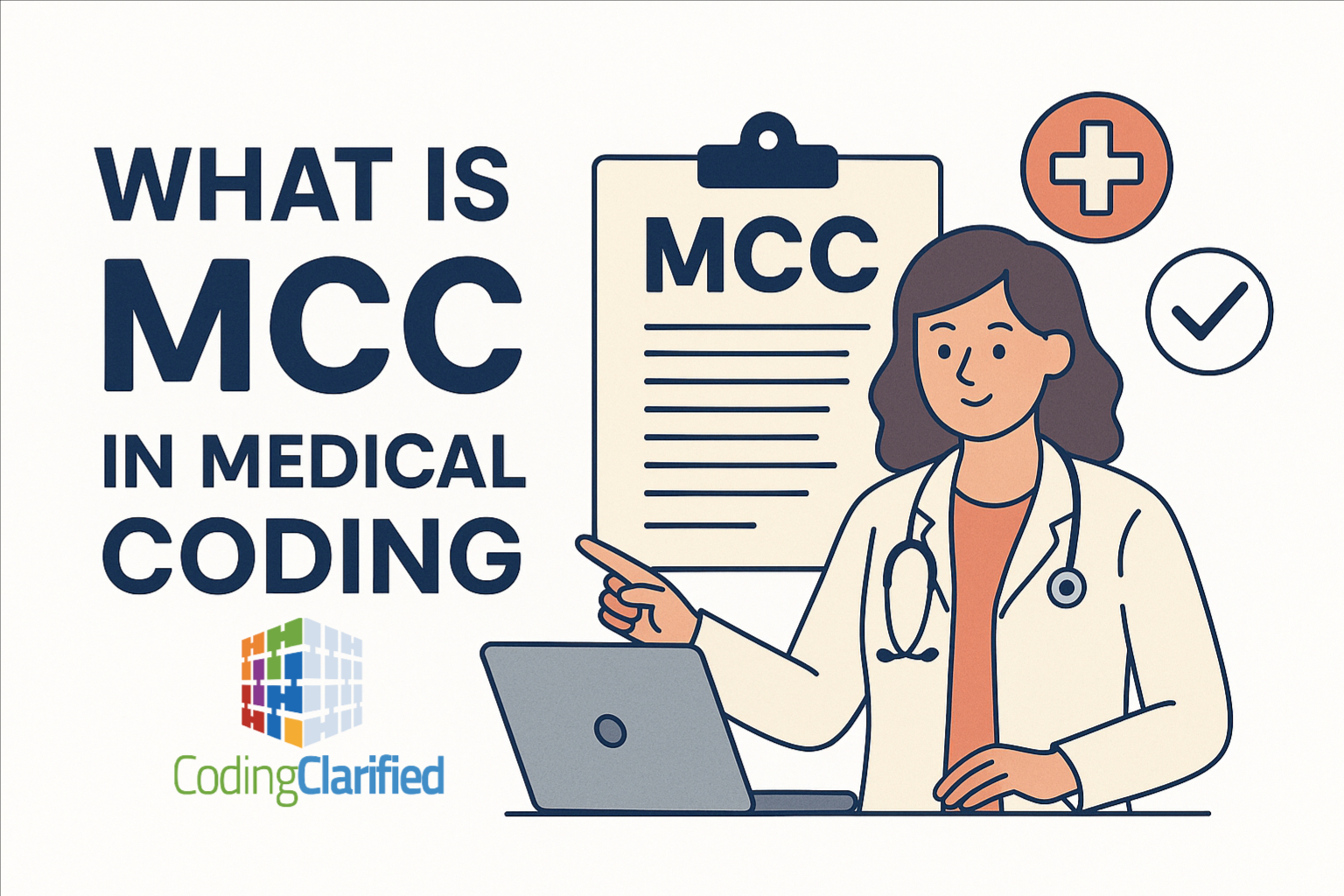Understanding MCC and How It’s Used
In medical coding, MCC stands for Major Complication or Comorbidity. It is a classification used in the ICD-10-CM and MS-DRG (Medicare Severity Diagnosis-Related Group) systems. MCCs represent conditions that are severe and significantly increase the complexity of a patient’s illness, length of stay, and the resources required for treatment. For example, about what is MCC in medical coding, a patient admitted for pneumonia who also has acute respiratory failure would be considered as having an MCC. This condition makes the case more resource-intensive than pneumonia alone.
How MCC Impacts Coding and Reimbursement
- DRG Assignment
- MCCs play a major role in determining the DRG grouping of a hospital inpatient stay.
- When a secondary diagnosis is an MCC, it often moves the case into a higher-weighted DRG, which increases hospital reimbursement.
- Severity of Illness (SOI) and Risk of Mortality (ROM)
- MCCs increase both SOI and ROM scores, reflecting the higher risk and complexity of care.
- This helps capture the true clinical picture of the patient’s condition.
- Documentation and Coding Accuracy
- Coders must ensure that MCCs are supported by clear provider documentation.
- Queries may be required if the record lacks sufficient detail to code the MCC properly.
- Quality Metrics and Case Mix Index (CMI)
- MCCs influence the Case Mix Index, a measure of hospital complexity and acuity.
- Hospitals with more MCC cases often reflect a higher level of specialized, complex care.
Examples of MCCs
Some commonly recognized MCCs include:
- Acute myocardial infarction
- Septicemia or severe sepsis with septic shock
- Acute renal failure
- Respiratory failure
- Severe malnutrition
Each of these conditions dramatically impacts the course of treatment, requiring more intensive resources.
Tips for Coders
- Verify Documentation: Ensure the provider explicitly documents the MCC diagnosis.
- Know the MCC List: Familiarize yourself with the ICD-10-CM MCC list published by CMS.
- Query When Needed: If documentation is unclear (e.g., “renal insufficiency” vs. “acute renal failure”), coders should query for clarification.
- Stay Current: MCC designations can change with CMS updates, so keeping up with the most recent guidelines is critical.
Key Takeaway: MCCs are essential in inpatient coding because they reflect severe complications or comorbidities that increase patient care needs, drive DRG assignment, and impact hospital reimbursement and quality metrics
Medical Coding and DRGs https://codingclarified.com/medical-coding-and-drgs/
ICD-10-CM/PCS MS-DRG v37.2 Definitions Manual https://www.cms.gov/icd10m/version372-fullcode-cms/fullcode_cms/P0031.html

